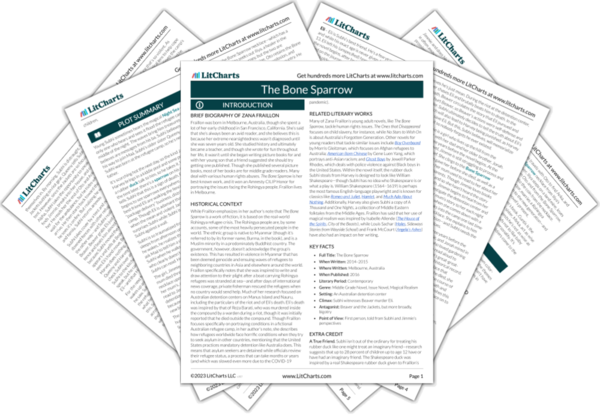That the Jackets force children to move to Alpha, where they’re at risk for all manner of abuse, reminds readers how life in the detention center robs children of their childhoods. The anecdote about the nine-year-old boy who was suicidal upon his return to Family Compound highlights the Jackets’ inhumanity—and it’s horrific. Further, Subhi’s desperate attempt to distract the Jacket so the Jacket doesn’t hurt Eli here makes it clear that life here is extremely dangerous, particularly for children.
